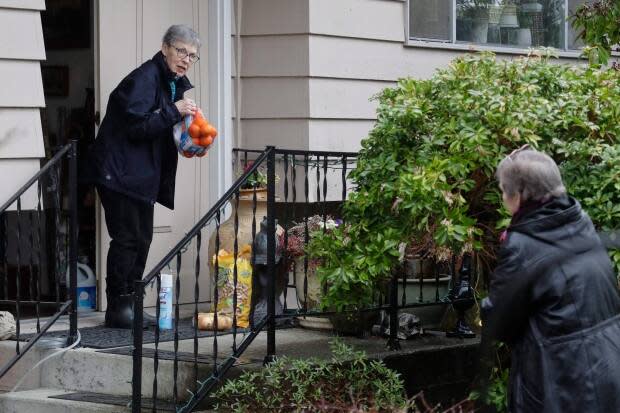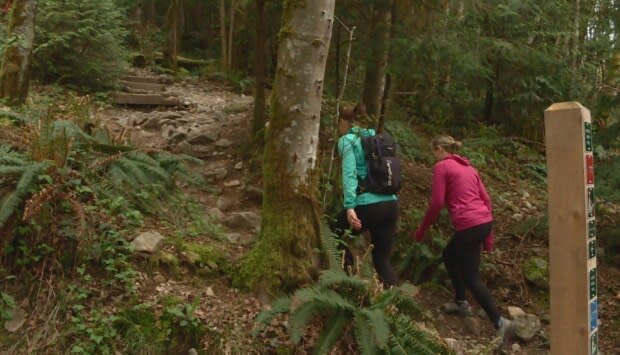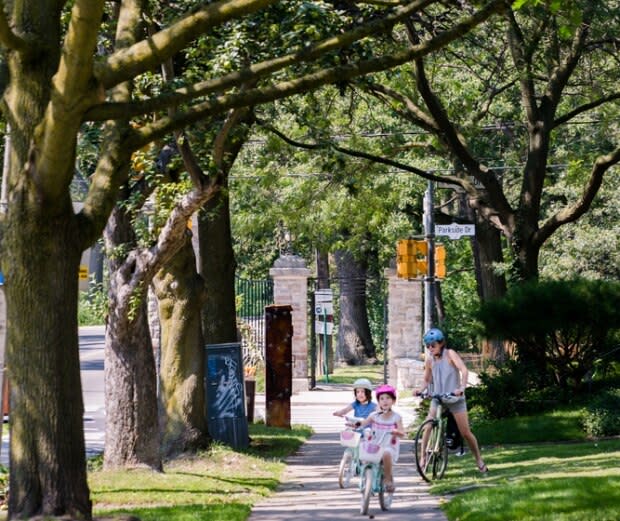Got questions about social distancing? Here's what you need to know

We've all heard a lot about social distancing or physical distancing to slow the spread of COVID-19, and most of us get the gist of what that means.
But it's still confusing to figure out which activities are OK, and which ones aren't, especially since different experts and authorities in different places are giving different advice, and it seems to change by the day.
For example, do you really have to stay home and avoid all your friends and family or can you go outside to do things like hiking and cycling?
Here's what you need to know.
How to do social distancing, in a nutshell.
Social distancing involves:
Interacting with as few people as possible.
The province of Manitoba also recommends minimizing any contact with others that's more than 10 minutes in public.
Kate Mulligan, assistant professor at the Dalla Lana school of public health at the University of Toronto, emphasizes that social distancing refers to physically distancing yourself from other people, and that staying in touch with others at this time is actually vital.
Everyone should do social distancing, but not everyone needs to self-isolate.
Mulligan describes social distancing as a "civic responsibility" that's for everybody.
But there are a huge range of social distancing measures, and not everyone needs to go to the extremes.
Self-isolation is the strictest form of social distancing where people can't leave home even for groceries (they need to be delivered). People are being asked to self-isolate if they have:
Cold or flu symptoms.
Have been diagnosed with COVID-19.
Have just returned to Canada from another country.
Have been in contact with someone who has been diagnosed with the illness.
More severe measures may also be advised for people at higher risk, such as seniors and people with chronic health conditions.

However, while maintaining a safe distance from others, healthy people can still continue to do things that are essential, which may include going to work, taking public transit and grocery shopping.
"We're going to have to continue living," Mulligan said.
Can you go outside? Yes, absolutely.
Many people have heard public health officials say things like, "Stay home unless you need to go out and get groceries."
For those who aren't self-isolating, Mulligan thinks that shouldn't be taken literally.
"I think what they mean by staying home is not to go have social interactions with people," she said. "Yes, you should be going outside."

The City of Ottawa puts it this way: "You can still go outside to take a walk, go to the park or walk your dog. If you need groceries, go to the store. We simply recommend that while outside you make sure to avoid crowds and maintain a distance of one-two metres (three-six feet) from those around you. "
In fact, the Government of Australia recommends being outside as a way of social distancing — for example, by holding meetings or eating your lunch outside instead of in your office.
Why is there so much variation in government social distancing measures?
Some social distancing measures aren't up to the individual, but imposed by governments. It's pretty confusing that some provinces haven't yet shut down schools, while others jurisdictions have sweeping closures of restaurants.
Mulligan admitted the mixed messages can be "confusing and irritating" for the public.
Dr. Stephen Hoption Cann, an epidemiologist and clinical professor at the school of population and public health at the University of British Columbia, said governments are following what's been successful in other countries and trying to balance those changing recommendations with the economic implications of very strict measures. "There's going to be some businesses that won't survive," he said.
He thinks some provinces may feel pressure to tighten restrictions because of their neighbours."You don't want to have the numbers of infected take off and people say: 'Why weren't you doing this when all the other jurisdictions were?'"
Mulligan thinks federal messaging on social distancing has been quite strict. "The provinces are slowly catching up to that," she said. "They seem to be waiting for science to demonstrate community transmission [people catching it at home, not abroad]." But she said unless lots of people are tested, that's often not detected until long after it happens.
How much should healthy people be limiting their own social interactions?
Obviously, people need to follow government rules and regulations.
Beyond that, it comes down to the individual, said Hoption Cann.
"That's your choice," he said. "You try and do as much as you can to prevent the further spread."
However, he said if you can avoid even smaller gatherings, such as meetings or playdates, it's a good thing to do.

Mulligan, who works with community health centres and said she is worried about maintaining services for the marginalized, takes a stronger stance.
"My advice to people is take this as literally and serious and strictly as you can reasonably in your life and avoid those contacts that are not essential."
What kinds of social interactions can we have, then?
Most experts, including both Hoption Cann and Mulligan, recommend outdoor activities such as walking in residential areas, hiking or going to less busy parks (while maintaining a distance of two metres between people, of course).
Watch: How to social distance at the grocery store:
Mulligan also recommends connecting online via video chats or calling or texting others.
But most of all, she recommends volunteering to help someone else, such as an elderly neighbour or relative.
"Turn your social needs toward altruism and community care and mutual aid," she said, " and you're going to feel really good and you're going to be helping."
Can I hire a babysitter?
Many schools and daycares across the country are closed. But not everyone can work from home, and with seniors at high risk, grandparents aren't necessarily the best option.
Hoption Cann said if you need to hire a babysitter, they should be carefully screened for cold symptoms.
Will governments and individuals need to tighten social distancing strategies further?
Hoption Cann said he does see a tightening of regulations as recommendations change.
"You want to keep an eye on public health recommendations as they're gathering data all over the world on best practices," he said. "It changes from day to day."
How long will we have to keep this up?
Unfortunately, nobody knows.
Many measures such as school closures are in place for two or three weeks so far.
Hoption Cann recommends avoiding large gatherings for the next month or month and a half.
Dr. David Buckeridge, a professor of epidemiology, biostatistics and public health at McGill University, told CBC News a few days ago that it could be weeks or months before we really get a handle on things.


